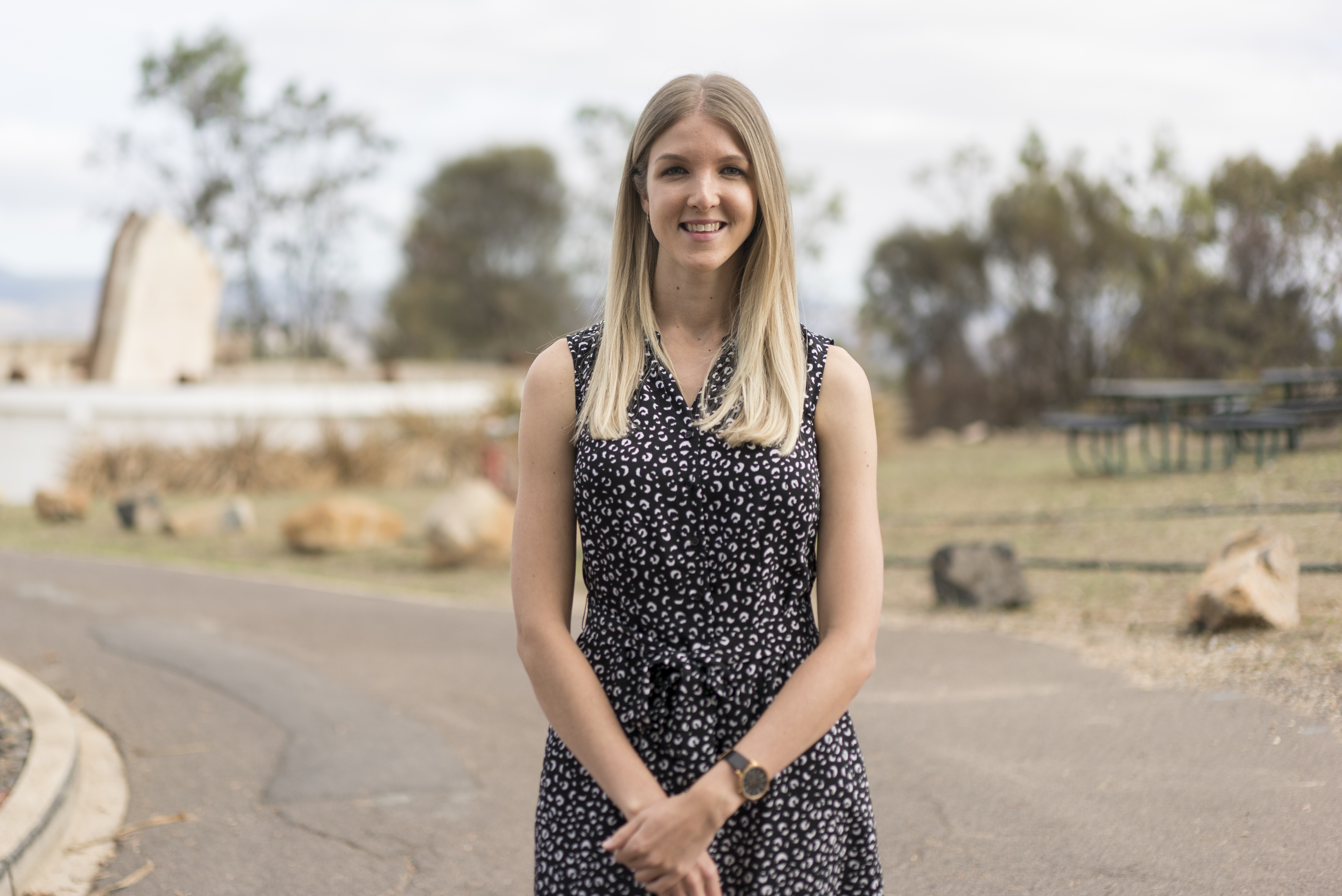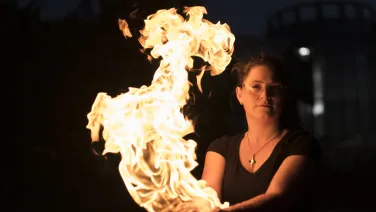For the next rendition of how A Star is Born, ANU is preparing an emu for spaceflight

As an Instrumentation Engineer with the Advanced Instrumentation Technology Centre at the ANU Research School of Astronomy and Astrophysics, the electronics and software she’s designing is destined for space.
But right now, her system is a prototype on her lab bench. Ms King points at a circuit board sitting there.
“I have written all the software running on here, but this board is way too big,” she says. “When we go to space, our boards will be only 10 by 10 centimetres.”
In space, it seems, space is at a premium.
Ms King’s hardware will eventually find its way into an infrared telescope called Emu.
At the size of a shoebox, Emu the telescope is much smaller than emu, the bird. It can also fly much higher: if everything goes to plan, it will spend six months attached to the side of the International Space Station looking out into space.
“As the space station goes around the Earth, it doesn’t go in a straight line, it varies its orbit,” Ms King explains. “We want to use this to our advantage, so Emu will eventually observe most of the sky.
“We hope to be launching in the next two years.”
In space, Emu’s mission will be to detect water in the atmosphere of stars. “This will give us information on how the star formed.”
I ask Ms King what it feels like to know that your work will be orbiting Earth in space one day.
“It’s surreal. I’ve wanted to do this since I was in high school,” she says.
“I had a dream of working on technology like the Mars Rover one day, but never thought that I could do this type of work in Australia.
“Now that the space industry is here, I can help grow it, all while working on something that can help us understand how the universe works.”
She says taking part in Australia’s space industry isn’t just limited to electrical engineers, astronomers and physicists.
“At the conferences I go to, there are also people there from business, health, medicine and law.
“Because the space industry is so new for Australia, you can get involved in any stream that you want.”
Many of the problem-solving skills that Ms King brings to her job stem from her studies in computer science, engineering and physics completed as part of her Bachelor of Engineering (Honours) / Bachelor of Science at ANU.
“Because I work in such a specialist field, I have to solve many of the problems we encounter myself.”
Ms King’s current problem is very similar to one that our cameras have back here on Earth: how to process images quickly and avoid filling up your memory card.
“The space telescope will take images extremely fast, and my software needs to quickly read-in all those images, process and store them.
“It also has to work in a vacuum, and in the extreme temperature and radiation environment of space.”
Ms King says her detector system is flexible enough to be rolled out for future space missions, including the SkyHopper telescope that will help discover potentially habitable Earth-sized exoplanets in our galaxy, and a satellite that will look back at Earth for much needed bushfire predictions.
“This will help us predict how bushfire-prone an area is by measuring the water composition of soil and vegetation.”
Not surprisingly, Ms King is glad she made the decision to move from Townsville to study at ANU. She says the combination of a scholarship, small class sizes, and exposure to space-related industry here in Canberra were instrumental in launching her fulfilling career.
“When I tell people what I do, they do a double take. Then they say, ‘Wait, what? That’s amazing!’
“It’s so unreal. All I can say is I absolutely love what I do.”
If your dream is to work in the space industry, consider studying astronomy, computer science, physics, engineering or even law, health or medicine.
With the combination of flexible and vertical double degrees on offer at ANU, the sky isn’t the limit - the cosmos is.


